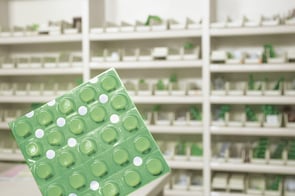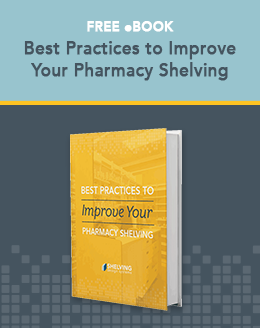 The specialty pharmaceutical market is booming and has been for a number of years now. In the year 2014, spending on specialty drugs increased by more than 30% according to Express Scripts, the largest pharmacy benefits management organization in the U.S. In addition, it was forecast that growth in the specialty drug segment of the pharmaceutical industry would continue at a rate of 20+% until at least 2017.
The specialty pharmaceutical market is booming and has been for a number of years now. In the year 2014, spending on specialty drugs increased by more than 30% according to Express Scripts, the largest pharmacy benefits management organization in the U.S. In addition, it was forecast that growth in the specialty drug segment of the pharmaceutical industry would continue at a rate of 20+% until at least 2017.
With the way the trend is going, some estimates have the specialty drug market quadrupling by the year 2020. These drugs already comprise more than one-quarter of the total drug spend in the U.S. and should soon grow to encompass a total of more than half the money spent on all drugs in the marketplace. For drug store owners looking for a way to significantly increase business and boost their bottom line, the pharmacy strategy of becoming an accredited specialty pharmaceutical provider may be worth considering.
What are Specialty Pharmaceuticals?
While there is no industry-wide accepted definition of specialty drugs or a specialty pharmacy, two initial factors that are always included are cost and complexity. Specialty pharmaceuticals are expensive. Some organizations consider the cost threshold as the main criteria for defining a "specialty drug" and many can cost $10,000 or more per month to take. CMS, the Center for Medicare and Medicaid Services (which covers a total of about 100 million patients), uses the monthly cost of $600 to define a specialty pharmaceutical.
These high-cost drugs are used to treat complex and often rare conditions, such as cancer, rheumatoid arthritis, hepatitis, hemophilia, and multiple sclerosis. The following are some of the ongoing trends for specialty drugs today and why the pharmacy strategy of getting into this rapidly developing market as a druggist could be to your advantage:
- In 1990, there were only 10 specialty pharmaceuticals in the marketplace. By 2008, this number had risen to approximately 200, and last year there were 300.
- While the sale of traditional prescription medicines has recently been in decline, according to Forbes Magazine, the sale of high-priced specialty medicines is booming. The Wall Street Journal suggests that the high cost of these drugs is due to their high perceived value when compared with medicines designed to treat more "common" illnesses.
- Dispensing of specialty drugs continues to require special training on the part of the pharmacist, and special pharmacies can become accredited by one of the three accrediting organizations. These drugs usually require special handling and unique inventory practices, and they are likely available only through limited distribution chains.
- Specialty drugs are often more complex to manufacture than traditional medications. They're frequently biologic substances – those that come from living cells – and require the use of cutting-edge technology in the area of biomedical research.
- Dispensing of specialty drugs continues to be a "high touch" process whereby they must be injected or infused, and one-on-one patient care is required to control side effects and to ensure proper compliance with standing protocols.
With the large number of high-priced specialty drugs now entering the pharmaceutical market, this segment of the drug business is attracting a lot of attention and becoming quite competitive. While many specialty drug manufacturers require pharmacies dispensing their products be "accredited" as specialty pharmacies, at this point, there is little being done to distinguish specialty pharmacies from other, traditional pharmacies.
It shouldn't be long, however, before all specialty pharmacists are required to show evidence of having received proper education and training in this unique area of pharmacology. If you're interested in pursuing this special distinction, consider seeking accepted accreditation.




